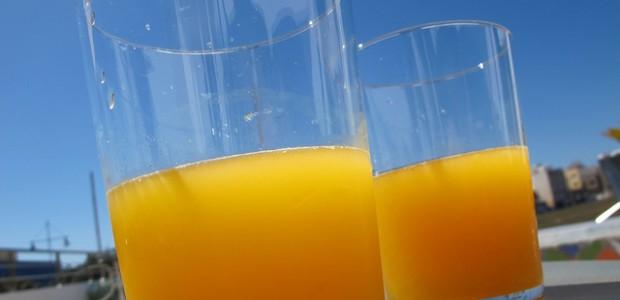Orange juice prices climbing as FDA investigates reports of chemical contamination
Orange juice prices are climbing after supply shocked affecting the two largest producers of oranges. (Photo by Flickr user Risager, cc-by-sa.)
The price of orange juice on the global markets hit a record high after surging over the past few days.
Brazil and the United States are the major producers of orange juice and different circumstances have constricted supplies from both sources. Florida experienced prolonged sub-freezing temperatures last week, causing some crop damage, but rattling the nerves of commodity traders.
While Florida produces most of the oranges in the United States, and the U.S. produces about 15 percent of the world’s supply, Brazil’s 33 percent share is the lion’s share, said Michael Smith of T&K Futures and Options in Florida.
“When you take a problem with either, you’re talking about half of the global production,” he said.
The U.S. Food and Drug Administration is investigating a report of orange juice concentrate from Brazil containing a fungicide not approved for use in the United States. Producers in Brazil use the fungicide to stop mold on their trees. The FDA says it won’t allow any imports of Brazilian oranges or orange products that contain the chemical. So far, though, FDA inspections haven’t turned up any problem shipments
“We could have quite a lack of product on the global market,” said Smith.
The market for orange juice is enormous, thanks in part to campaigns like those produced by Florida’s Citrus Commission back in the 1950s, including one featuring tennis star Gussie Moran.
“And Gussie I’d say that you really go for that orange juice,” a man says. “Bud, I crave it,” replies Moran. “After a fast tennis match nothing refreshes me as fast as orange juice.”
Elizabeth Sullivan, a health coach based in New York, isn’t quite as sanguine about orange juice. She points out there are 22 grams of sugar in a single glass of orange juice.
“So what happens is that the sugar gets absorbed immediately into your blood stream and it might give you an energy spike right away. But over the long run that’s an awful lot of sugar in your diet if you’re drinking a lot of orange juice,” she said.
While Sullivan said it’s better to eat a whole orange, orange juice has long been America’s primary source of vitamin C. And despite the supply crunch, that doesn’t look set to change.
